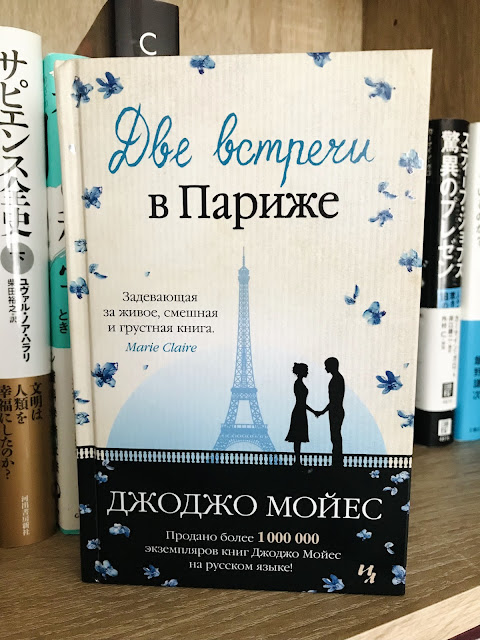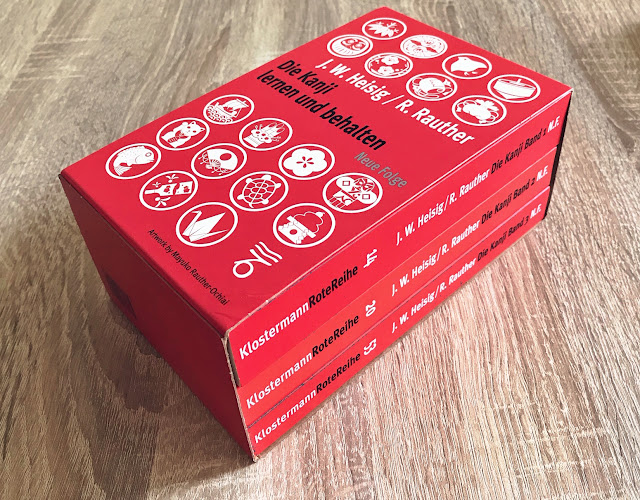March roundup - Russian
And as promised in my last post, here's my Russian roundup of March!
(Anki) Russian starter deck (this one)
By now, I reviewed every card at least once! This deck is a good start. Each card presents a sentence which changes every day (so that you learn the words and not memorize the sentence). If you click on a word, you can check its definition. Plus, some cards contain grammar explanations. However, I noticed that some sentences are confusing. Sometimes because of the lack of context and sometimes because they contain difficult phrases. Even after checking the individual words and the translation of some phrases, it didn’t make sense to me. In cases like this all you can do is to memorize what this combination of words means. Anyways, I'll continue reviewing this deck.
(Anki) ru15k (this one)
I suspended all cards except for the first 1k cards to focus on them first. I'm currently reviewing 10 new cards per day. Maybe a bit low, but my main focus is reading. That's why I try to keep my daily Anki time below 30 minutes. To me, this deck is only a supplement.
(YouTube) Comprehensible Russian: Zero Beginner
I watched almost all videos from this playlist! I skipped a few videos because sometimes the audio quality is not good or the video was originally a private lesson where you hear the learner in the background (they sometimes talk in English in these videos). Sometimes she uses words I don't know yet but, overall, I can understand these videos well.
(YouTube) Comprehensible Russian: Beginner 1
I'll stay with this YouTube channel and continue with the Beginner 1 playlist. I watched 4 videos so far. They are pretty similar to the ones from the Zero Beginner playlist but the topics are a bit more complex.
Short Stories in Russian for Beginners by Olly Richards
I finished all short stories from this book! Since I started from zero I had to look up almost every word in the beginning which was hard, but I learned a lot along the way. The stories were not as exciting like a bestseller for example but there was always an interesting plot twist. They introduce many common words and repeat them regularly in their stories, which helps to get used to them. By looking up every unknown word I noticed a few small errors in the text (e.g. sometimes a wrong letter was used so when I put this word in an online dictionary it wasn't possible to find it at first). It’s not a big deal but learners should keep that in mind and be a bit cautious. (I've read the ebook version)
Short Stories in Russian for Intermediate Learners by Olly Richards
This graded reader is aimed at intermediate learners so it’s noticeably more difficult. But it’s still easier than the novel I started which is aimed at native speakers. Like with the other graded reader before, I noticed a few small errors in the text (like a wrong letter or a additional letter for example). It's not a big problem, just be a bit cautious. (I'm reading the ebook version)
Assimil (lesson 11 - 17)
I did one lesson per day in the beginning but I noticed that I had trouble with new words. After 10 lessons, I reviewed some lessons a few more times before going on. After that I decided to listen and read every lesson (at least) twice before moving on, means I listen and read a new lesson on one day and on the next day I review this lesson once more. I move on as soon as I can understand the dialogue without checking the meaning of words.
Две встречи в Париже
This book contains two stories. The first one is Медовый месяц в Париже and I finished the first chapter! This is my personal highlight from this month. I chose this book as my first novel in Russian because it contains two rather short stories. This makes it less daunting and overwhelming. I also bought the audio book. I read around one page per day. The story is interesting so far. I'm curious how it will continue.
Reading novels is very difficult at my level of course. Compared to the graded readers the used language is more complex. So I need to look up a lot of words. It's difficult but I take my time. Reading a real novel feels great and is a strong motivation!
Fit in 30 Tagen Russisch (textbook)
I bought this textbook years ago but after a few lessons I felt overwhelmed because in every lesson they introduce many new words and phrases at once and the grammar explanations were too complicated and dry. To me, textbooks like these are not very beginner friendly. (Assimil does a much better job in my opinion.) But since I bought this book I also want to use it in some way, so now I started to read the dialogues and listen to the audio. I treat it like graded readers and not like a textbook. I only use this book as additional (level appropriate) reading material.
Euronews article
News articles are very difficult at my level but I wanted to read another one because I was very interested in the topic. I looked up lots of difficult words but I also gained interesting information.
(YouTube) In Russian From Afar - Beginner Videos A1
Originally, I wanted to start with "Russian with Max" at this point but then I came across this channel and changed my plan. I like his videos for beginners more. I'll switch to "Russian with Max" when I can understand more. The videos I watched so far have Russian subtitles. I try to understand as much as I can from the video itself but if in doubt I check the subtitles.
Animal Crossing
I also started to play Animal Crossing in Russian! I loved playing AC in Japanese so I wanted to play it in Russian, too. It's surprisingly difficult for beginners. I need to look up much more words than I thought. When I played it in Japanese, my initial level was much higher so it was pretty easy to understand. That's why I was a bit surprised. XD But I think the beginning is the most difficult part of the game because they explain a lot. Later you have more freedom and it gets more relaxing. It's not easy at my level but I enjoy it a lot.
This game is great in my opinion because you can learn many words from context. Plus, by interacting with different objects and characters you'll get familiar with these words in a meaningful way. Like in my case, I quickly learned the words пала́тка (tent) and о́стров (island) because the first task in the game is to find a nice place to live on a untouched island. Once you get absorbed in a game (or book) you'll easily learn words that are important for the story or to fulfill a task in the game.
If you want to read something above your level, I recommend to use your smartphone and the Google Translate app to scan the text from the game (or book). As soon as the text is digitalized its much easier to look up words. I look up each unknown word and try to understand the sentence as best as I can. I save these texts from the game for later review. In most cases I ignore the translation from Google Translate, because I won't learn anything from relying on this translation. I learn the most if I look up unknown words and make an effort to understand the sentence myself. Only if I really can't make sense of a sentence I look at the translation for clarification.



Comments
Post a Comment